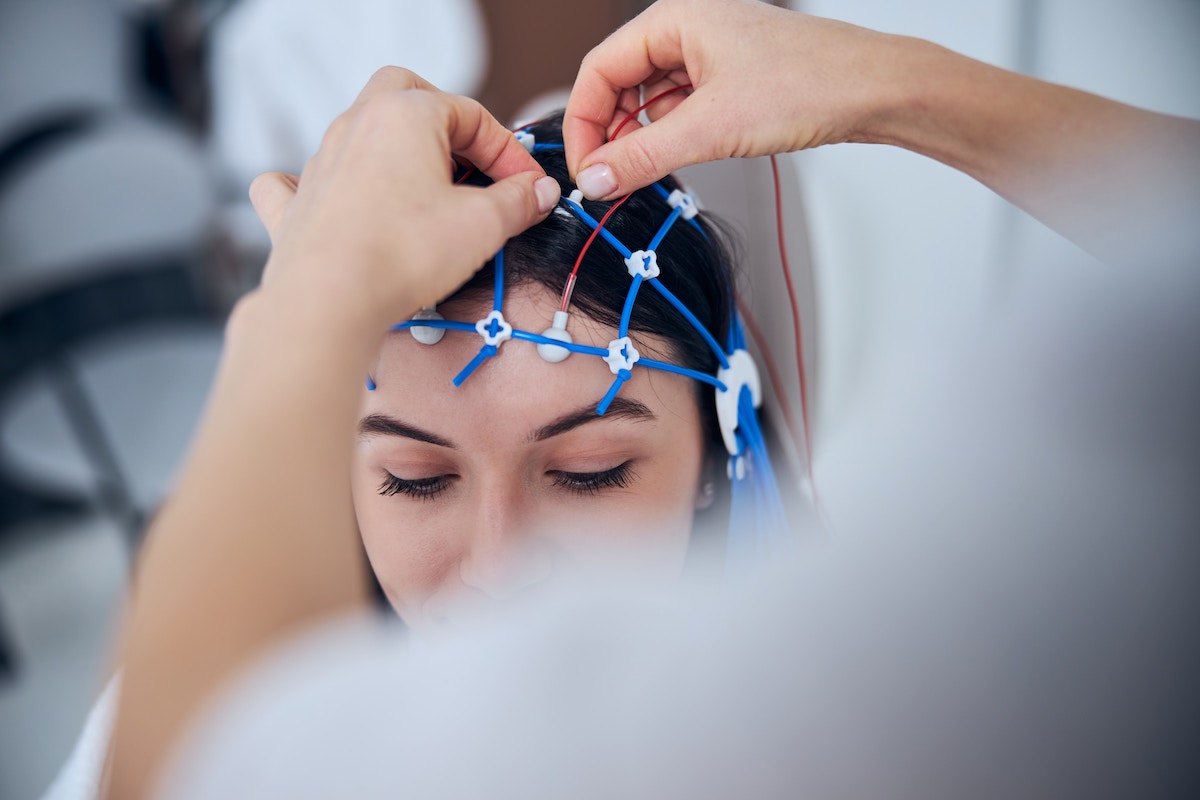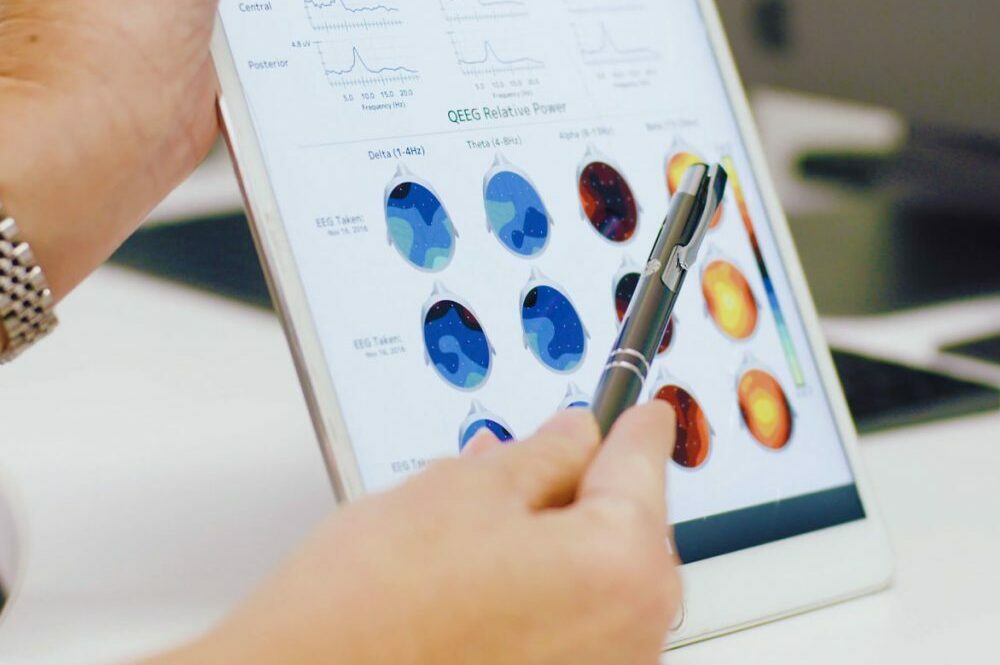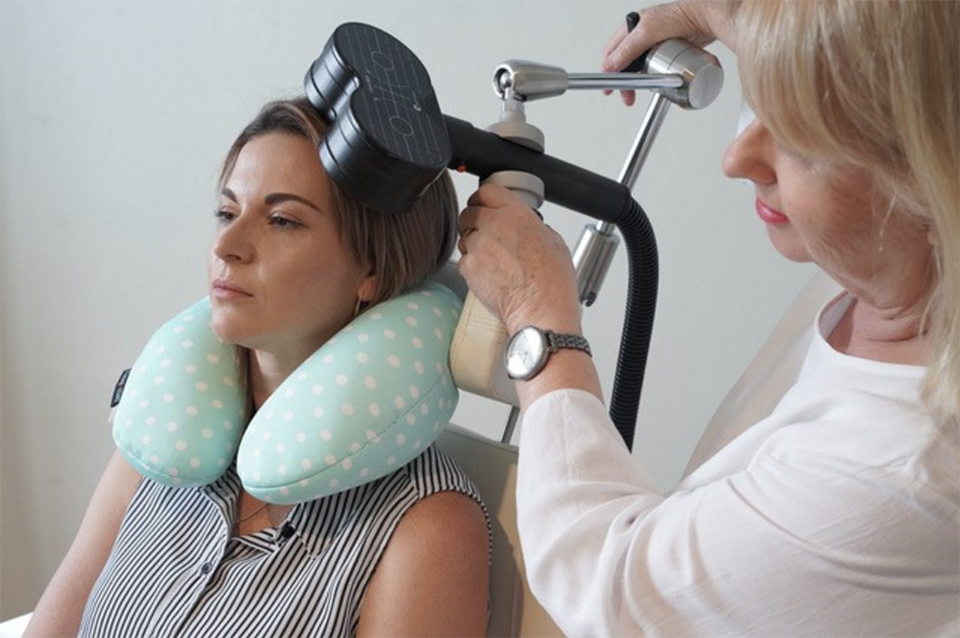
Parkinson’s Disease
A Revolutionary Treatment that May Help Patients with Parkinson’s Disease
Contact our New Patient Coordinator
for more information. Or fill out the form below.
Mert, magnetic resonance therapy
A Treatment for Parkinson’s Disease
In patients who have Parkinson’s disease, specific neurons in the brain begin to break down and die. Many symptoms of Parkinson’s occur because of the loss of neurons that produce a chemical in the brain called dopamine.
When these levels of dopamine decline, it causes abnormal brain activity, which then manifests in Parkinson’s disease.
Parkinson’s is progressive, and currently, there is no cure. However, medications exist to improve symptoms. Surgery also might be an option depending on your specific case, in order to help to regulate the function of certain areas of your brain.
I have been a a patient of BTC, first in Newport Beach, CA, then in Dallas, TX. I have Parkinson’s disease and have greatly benefited from the treatment, allowing me to have a relatively normal lifestyle. Dr. Miller and Senior Tech Erika Shelby are wonderful. This is a miracle treatment!” – Randy
We Offer A Revolutionary Treatment that May Help Patients with Parkinson’s Disease
Here at the Brain Treatment Center Dallas, Dr. Miller and his staff offer MeRT® for Parkinson’s Disease. MeRT is a unique and improved version of TMS (Transcranial Magnetic Stimulation) and is a much more individualized approach to brain modulation,
We tailor treatment to each person’s needs based on frequency, location, and power used. This is a customized, scientific approach that is unique to each patient.
TMS modulates the brain’s electrical activity by using magnetic fields which pass through the scalp from an electromagnetic coil. However, it is important to note that TMS is a generalized approach to neuromodulation because it can only target a single location in the brain with a single frequency. MeRT, by contrast, is highly personalized.
We perform a quantitative EEG before modulation treatment starts. We carefully analyze these initial tests to determine the brain’s pattern of function and activity. Through this detailed analysis, we can determine the correct neural synchronization. We use this information to devise a highly personalized protocol for each patient, with the purpose of encouraging improved brain communication. Many of our patients have noticed significant clinical improvements.*
The neuromodulation equipment used is FDA-cleared to treat depression that has been resistant to medications. We can also use it off-label for other disorders in the practice of medicine. These include Parkinson’s disease, dementia, and other brain-related conditions.
Treatment for Parkinson’s disease usually lasts four to six weeks and can be done alongside other therapies. Appointments are 30-45 minutes, Monday through Friday. Many of our patients report they notice a difference occurring within the first week.*
The causes of the disease are unknown; however, both genetics and environment can play a role. Some gene mutations can cause Parkinson’s, but these are rare and usually only seen when many people in a family are afflicted with the disease.
Ongoing environmental exposure to herbicides and pesticides may increase the risk of developing Parkinson’s in later years, but this is uncommon as well.
Contact our New Patient Coordinator
for more information. Or fill out the form below.
Parkinson’s Symptoms
- Tremors, which usually start in the hands or an arm or leg. Tremors can occur even when the body is at rest.
- Rigid muscles can limit movement anywhere in the body and also cause pain.
- Slowed or impaired movement can make simple tasks more difficult and time-consuming. Steps when walking can become shorter and disjointed, and it can be hard to do everyday tasks like getting out of a chair or going to the bathroom.
- Balance issues.
- Stooped posture.
- Decrease in automatic movements such as blinking or smiling.
- Speech can become monotone without inflection. The patient may slur or talk faster or slower than normal.
- Difficulty with writing.
- Depression, anxiety, and fear.
- Sleep disorders such as insomnia and/or sleeping during the day.
- Generalized fatigue.
- Incontinence or difficulty urinating.
- Constipation (digestion is slower).
- Changes in blood pressure with movement, such as a sudden drop in blood pressure when going from a sitting position to standing.
- Dysfunction with the sense of smell, such as no longer being able to identify some odors.
- Generalized or specific pain in various areas of the body.
- Cognitive issues such as dementia usually occur in the later stages of the disease. Lewy Body Dementia, which can cause hallucinations, is a common type of dementia experienced by Parkinson’s patients.
- Chewing, eating, and swallowing problems can occur as the disease progresses due to slowed muscle movements.
- Breathing problems.
Parkinson’s Treatment
Many medications are being used to help control various Parkinson’s symptoms. However, no dopamine supplements or prescriptions exist. That’s because dopamine given directly doesn’t enter your brain where it’s needed.
However, some medications are designed to mimic dopamine effects in the brain. Yet the longer someone takes these drugs, the more likely they can stop working consistently.
Other drugs can be infused via a feeding tube, which delivers the medication directly to the small intestine for maximum absorption. Other meds can be delivered by injection or a patch that’s placed on the arm. Unfortunately, some medications can have serious side effects, such as hallucinations.
Deep brain stimulation surgery includes implanting electrodes into a certain part of the brain. These electrodes are connected to an implanted generator in the chest. The generator sends electrical pulses to the brain, which can reduce Parkinson’s symptoms.
Surgery is not without risk, and complications can lead to infections, brain hemorrhage, and stroke. Some people can also have problems with the equipment.
While these types of treatment can help with symptoms, they cannot curb the progression of the disease.
“We’re really seeking to balance the function of the brain.”
When you optimize the brain, the brain is seeking equilibrium, homeostasis, or a low energy state in which to operate. An aberrancy or dysfunction of the brain actually requires energy for the brain to kind of realign itself….
“And when you’re using that extra energy, it fatigues the brain. It makes the brain not operate optimally. It makes you confused, tired, and lack understanding.
“This is very similar to nutrition: If you don’t have the right nutrition the balance just isn’t there. We’re really seeking to balance the function of the brain.”
–Dr. Spencer O. Miller, Neurologist, Owner and Medical Director of Brain Treatment Center Dallas
Starting as a New Patient for Parkinson’s Treatment
When you start as a new patient at the Brain Treatment Center Dallas, you will initially need two appointments, approximately two days apart. Both appointments will be about an hour in length. These appointments will be used to determine if Dr. Miller feels you can truly benefit from the MeRT Program and, if so, to develop a tailored treatment plan based on your test results. After testing and consultation, you are not obliged to begin treatment. This is something that you will determine once you have seen your test results and consulted with Dr. Miller.

Initial Testing
At the first appointment, we will go over your reasons for seeking help, your medical history, your health goals, and all of your symptoms. You will then begin initial testing, which will involve an EEG and an EKG. These are both completely painless and easy and done right in our office. We then send your information and test results to our scientific and clinical teams, who will carefully analyze the results and determine the current state and functioning of the brain together with Dr. Miller.
We use a patented, scientific approach with the neurophysiological data gathered through testing to develop a highly customized treatment plan aimed at encouraging healthy brain communication and function.

Consultation
At your second appointment, you will meet with Dr. Miller for a Consultation. He will discuss your test results and whether he and our scientific team feel you may achieve results through our treatment protocol. This appointment will also serve to answer any additional questions you may have. After that second appointment, Dr. Miller will lay out your individualized treatment plan and the protocols to be followed for the best results. At that point, you may discuss fees, length of treatment, and schedules, and then decide whether to go forward and schedule your treatment.

Test Run – The Assessment
We deliver the MeRT protocol using TMS. You simply sit in a comfortable chair while a trained technician carefully positions a simple device on your head. This device produces a magnetic field to induce mild electrical currents in the targeted regions of the brain. There is no pain and no electrical currents, just a slight sensation.
We will perform an additional EEG and EKG after about a week of treatment, allowing us to assess progress and make any needed modifications. In this way, we are always taking the best and most exacting approach based on the current neurological state.
Insurance Coverage
Unfortunately, we do not accept insurance nor file it on your behalf. However, we can provide you with CPT codes and a billing breakdown. You can submit these to your insurance for possible reimbursement for conditions that TMS has been FDA-cleared to treat, such as Major Depressive Disorder and OCD. On occasion, individuals have been successful in receiving reimbursement for EEGs and clinical evaluations, and possibly other elements for treatment, depending on the individual’s coverage. It has been our experience that Medicare does not reimburse any of the treatment costs.
Contact our New Patient Coordinator for More Information about MeRT
When many patients come to see us, they have lost hope, as they don’t see any light at the end of the tunnel.
It’s rewarding as a practitioner to help so many people realize a much better “normal” and improved quality of life.
If you have questions or would like to discuss our treatment protocols, we offer a free consultation by phone.
Our New Patient Coordinator will take the time to listen and explain. She is able to answer most questions and discuss our protocols, scheduling, fees, and other information. She is happy to assist you in any way she can.
Please call us to get more information about how our clinic and Dr. Miller may help you with your health goals and to schedule an initial screening to see if MeRT may be an option.
Contact our New Patient Coordinator
for more information. Or fill out the form below.
